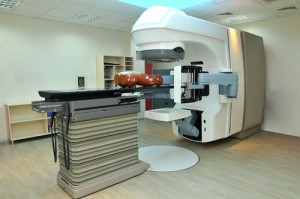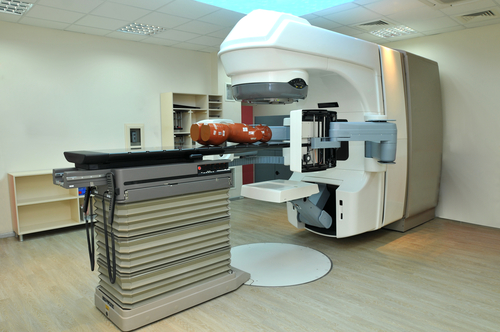 A recent study published in the Radiotherapy and Oncology Journal and conducted by a team of scientists from the United Kingdom, supported by Cancer Research UK, has gathered evidence supporting a true association between common genetic variants and late radiotherapy toxicity, which can accumulate years after the treatment has finished and can result in bowel or urinary incontinence after radiotherapy for prostate cancer, or breast shrinkage after post-operative radiotherapy for breast cancer. The consequences are largely variable on a patient-to-patient base and are dependent on radiotherapy dose, distribution, simultaneous chemotherapy or co-morbidities such as diabetes.
A recent study published in the Radiotherapy and Oncology Journal and conducted by a team of scientists from the United Kingdom, supported by Cancer Research UK, has gathered evidence supporting a true association between common genetic variants and late radiotherapy toxicity, which can accumulate years after the treatment has finished and can result in bowel or urinary incontinence after radiotherapy for prostate cancer, or breast shrinkage after post-operative radiotherapy for breast cancer. The consequences are largely variable on a patient-to-patient base and are dependent on radiotherapy dose, distribution, simultaneous chemotherapy or co-morbidities such as diabetes.
In this study, the researchers aimed to identify common genetic variants associated with late radiotherapy toxicity, using a genome-wide association study (GWAS) design. Data from a previous report that assessed polymorphisms to predict the effects of radiotherapy was used. This research involved 1850 patients with two-year radiotherapy toxicity, 1217 of which received adjuvant breast radiotherapy and 633 had radical prostate radiotherapy. Blood was taken prior to radiation, at a minimum of 6 months following end of treatment or at any point in the trial, and genotype associations with both overall and individual endpoints of toxicity were tested using statistical regression analysis.
Data regarding radiotherapy dose, age, ethnicity, smoking history and diabetes mellitus were available for all patients studied. In breast cancer patients, use of tamoxifen and chemotherapy, radiotherapy breast boost, breast volume, co-morbid cardiovascular disease and cosmesis after surgery was documented, and in prostate patients data on hypertension, previous surgery, clinical stage, risk of seminal vesicle involvement, concomitant hormone therapy and baseline symptoms were also recorded. The endpoints used to assess toxicity in breast cancer patients were defined as pain, telangiectasia, and breast shrinkage, whereas for prostate patients, the endpoints consisted of urinary incontinence, decreased stream, urine frequency, proctitis, rectal bleeding, and rectal incontinence.
[adrotate group=”1″]
The strategy for the study consisted of analyzing single nucleotide polymorphisms (SNPs), DNA sequence variations occurring within a population in which a single nucleotide in the genome changes between members of a biological species or paired chromosomes. These genetic modifications can be responsible for differences in our susceptibility to disease. The researchers analyzed a total of 2,417,493 genotyped or imputed SNPs for association with overall, tumor-site independent toxicity in 1773 patients. The SNPs were also analyzed for association with 10 individual toxicity endpoints, seven in 579 prostate patients and three in 1194 breast patients.
The results showed significant evidence that common genetic variants are associated with a cancer patient’s risk of developing late radiotherapy toxicity, however, none of the SNPs with potential associations to such toxicity had previously been related to prostate or breast cancer susceptibility nor are they in genes previously considered to be candidates for radiotherapy toxicity. Despite the limited sample size, it is possible that the associations detected in this study represent some of the most strongly toxicity-related genetic sites within chromosomes.
These results can help to establish personalized radiotherapy treatments based on the patient’s genetic risk of toxicity, a clinically relevant measure with the potential to improve the health and quality of life of patients receiving radiation therapy.


